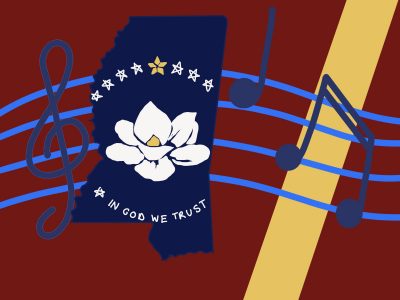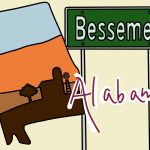I have found in my experience talking with people in northern cities that most self-identified “progressives” are rather dismissive of the American South as a whole.
Terms like “stupid,” “racist” and “incest” are thrown around constantly, disregarding the diversity and cultural influence of the South and ignoring the systemic inequities that have lead to the hardships that compose such stereotypes.
Clarksdale, a small town in Mississippi teeming with musical history, is a perfect example of the remarkable communities and historical challenges overlooked by urban America.

In February 2020, I sat in the Bluesberry Cafe, listening to Watermelon Slim – award-winning and toothless blues musician – howl as he plucked the strings of his three-string guitar. I was spending the week in Coahoma County, Mississippi with my high school’s Habitat for Humanity group, and we decided to spend our night together in one of Clarksdale’s legendary music venues.
The Mississippi Delta, the name for the Northwest region of Mississippi, had a global impact on 20th century music. Clarksdale is home to many markers on the Mississippi Blues Trail, a project that maps influential sites of the United States’ oldest original genre of music. It is also the home of the fabled “crossroads,” where blues musician Robert Johnson famously sold his soul to the devil in order to become the greatest living guitar player.
Muddy Waters, Grammy Award winning musician who influenced the likes of the Rolling Stones and Jimi Hendrix, grew up as a sharecropper in Clarksdale. Due to the rich soil from flooding of the Mississippi river, the Delta was historically a place dense with cotton plantation and sharecropping, meaning that the Mississippi Delta region is home to many majority black towns, including Clarksdale.
The legacy of slavery and sharecropping has plagued the Mississippi Delta with systemic poverty and inequality. Gang violence is notably high in Clarksdale, and declining opportunities have been met with a dwindling population and alarmingly high poverty rates.
In a state already ranked as one of the lowest in education, private charter schools have exacerbated educational inequality in the Clarksdale area. School choice has long been a pseudo-synonym for segregation, as pointed out by the Washington Post, and Clarksdale is no different. When private schools opened in Clarksdale, white families abandoned the public system, and the lack of resources available in the public school system disproportionately affected black residents.
There is a lot to do in order to mend systemic poverty in the Clarksdale area but many are working to address this. Higher Purpose is a Clarksdale nonprofit that formed in 2016 with the mission of investing in Black-owned businesses and spreading community awareness for policy and education.
Tutwiler, another small town just outside of Clarksdale, is home to a magnificent community center that offers programs to enrich children and families in their community. Having personally visited the Tutwiler Community Education Center, I love their Tutwiler Quilters Project, a fantastic display of the traditional quilting style of African Americans in the Delta.
On my last day in Mississippi, a local church hosted a potluck for the wider community to get to know the volunteering groups. While driving to the church, a van of some of my peers encountered a problem. It had been raining earlier that day, and the unforgiving mud of the Delta had lodged the wheels into a ditch. One generous church member offered the use of his towing truck, and thanks to his good will, everyone was able to make it to the potluck in time, all vehicles intact.
Clarksdale, Tutwiler and the other small towns of the Mississippi Delta are all still wrestling with the systemic poverty caused by a legacy of discrimination, but the communities are still home to vibrant and, in my experience, welcoming people.
Clarksdale of course has its share of clashes over inexcusable racial bias, like just about every city in the US, but to dismiss the entirety of the state or region as “stupid” or “racist” is to write off the systems of poverty that affect public education, and the thousands of majority Black communities who have impacted the greater cultural landscape of the US.
If you are feeling generous during this last week of Black History Month, you can join me in making a donation to the Tutwiler community education center here, or to the Coahoma Community College Foundation here.




